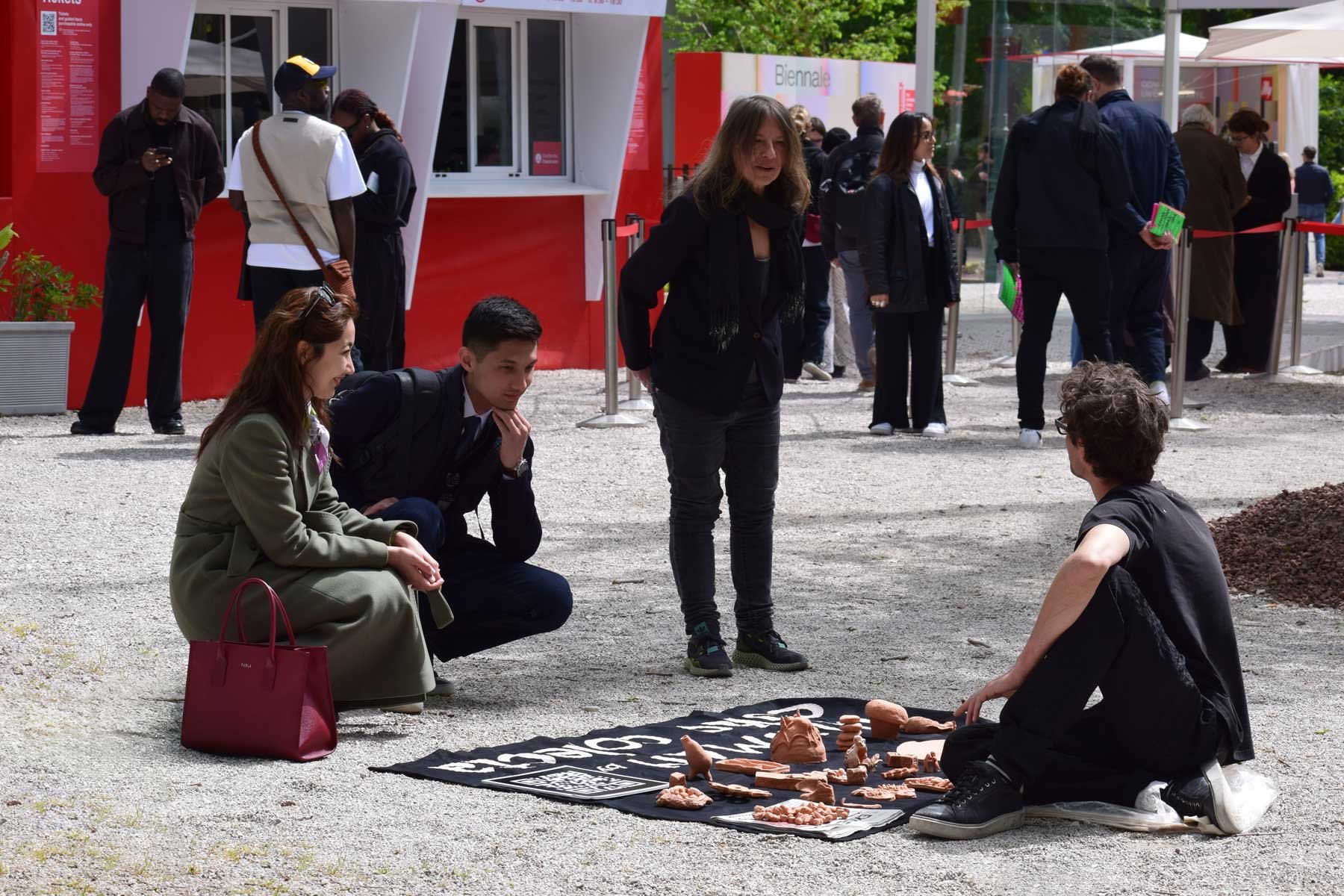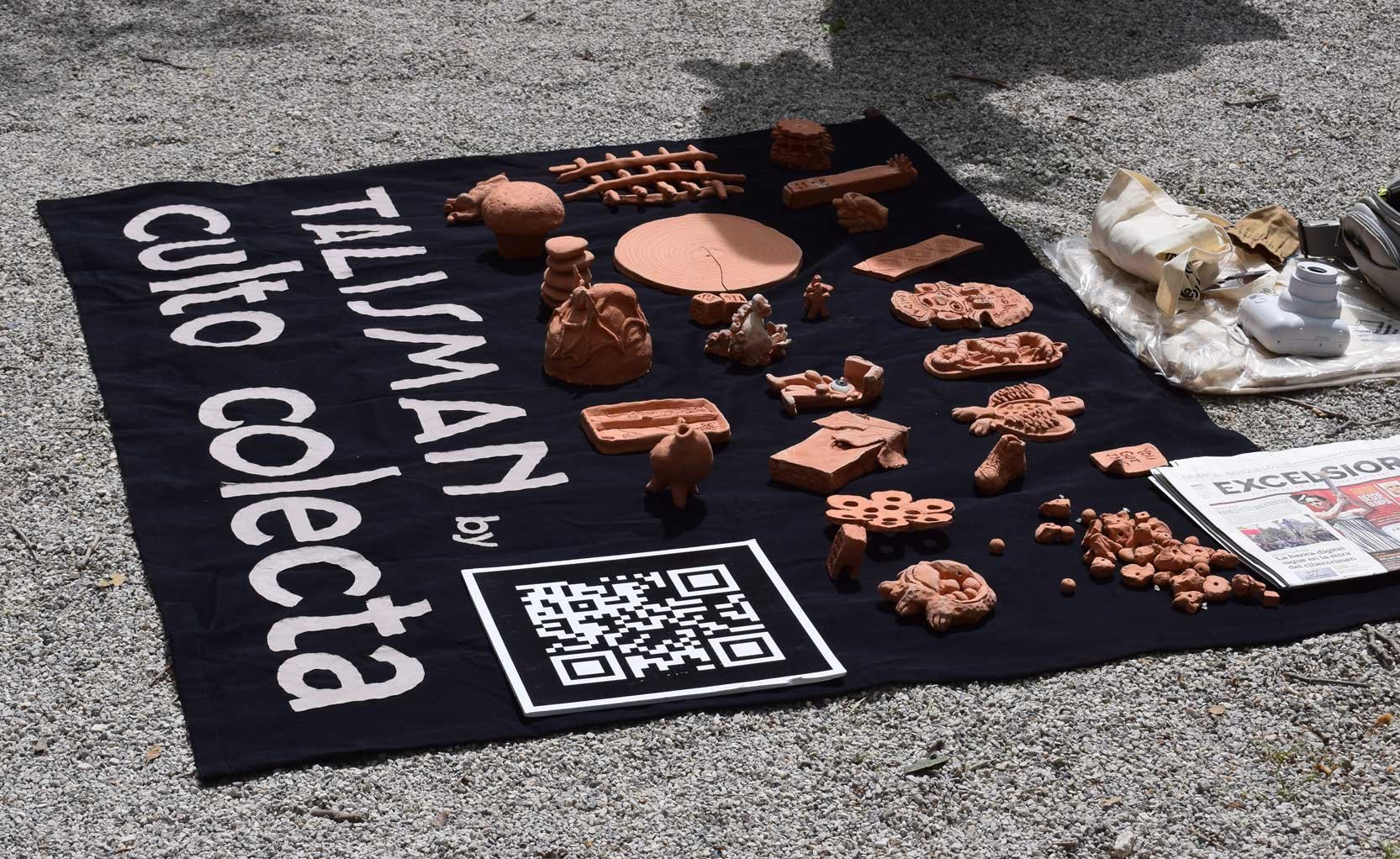TALISMAN
One hand loves the other
April 20 - 22, 2024
Venice, Giardini della Biennale
14:00 - 18:00












Curators
Interview with curators
Artists
Aida Lizalde
Fernanda Urquiza
Peter Filimonov
Andronik Khachiian
Rida Khasanova
Hellène Aligant
Diana Barquero
Marta Kosmina
Stas Dzhus
Alexander Etewut
Amado Cabrales
Valentina Guerrero
Samuel Nicolle
Susana Oliveros
Antoine Granier Nino
Cat Donohue
Richard Moszka
Guadalupe Reyes
Mar Coyol
Darío Fénix
Emilia Mejía
Karina Abdusalamova
Press release
If you had to leave home forever, what's the one thing you'd take with you?
A man sits on a blanket in the midst of a busy street, vending his wares. Only the policemen show faint interest; to others, he's invisible. He's traveled from afar, bringing something along, but what is this place, and what are these items? At first glance, the goods spread out on the blanket appear to be trinkets or "chacharas" — miscellaneous objects of little value. However, these strange handmade artifacts are more than meets the eye. They are magic talismans crafted to offer protection to those who must leave their homes in search of a better life.
“Talisman. One Hand Loves the Other" is a collective art intervention carried out by the contemporary art platform culto colecta in collaboration with artists, creatives and people in migrant conditions based in Mexico City. Following the main theme of the LX Venice Biennale, "Foreigners Everywhere," the project's curators — Tonatiuh López, Amado Cabrales, and Cristina Torres — opted for an experimental approach, exploring the concept of crossing borders, both imaginary and real, within the Latin American context.
The talismans are ceramic objects created through collaboration between artists and migrants from diverse backgrounds during a workshop in Mexico City held several weeks before the Biennale. In a four-hour session, participants worked with clay, shaping their personal experiences of displacement into collective objects of power. Clay possesses a unique quality of "remembering," holding onto the memories of the processes impressed upon it and evoking emotions and affections that may have been stored away. In this way, the memory embedded within the talisman creates a bond between the object and its recipient, intertwining different migrant experiences in a magical manner. Passing from hand to hand, these objects weave invisible yet powerful connections, symbolically aiding the journey. This essence is captured by the subtitle "One Hand Loves the Other," emphasizing the web of favors, experiences, and solidarity that emerges during the migration process. In addition to magic, migrants rely on the support of others to endure and safeguard their lives.
The performative aspect of the project involves the street intervention conducted during the Biennale in Venice by culto colecta’s founder, Andronik Khachiian, who transforms into a “fayuquero.” In Mexico, a “fayuquero” is a street vendor selling contraband goods, from knock-off branded items to pirated DVDs, often displayed on blankets spread out on the ground in makeshift markets. Fayuqueros are known for their resourcefulness, navigating legal gray areas to make a living. By "trafficking" talismans that represent magical objects, commodities, and art pieces altogether, the street vendor also embodies a shaman crossing borders to convey the message of hope fostered by collaboration and mutual support.
A percentage of the proceeds from talismans sales will be donated to a Mexican NGO that works with migrants and refugees.
Ceramic workshop
Casa Taller — Marisol Monroy Rocha

